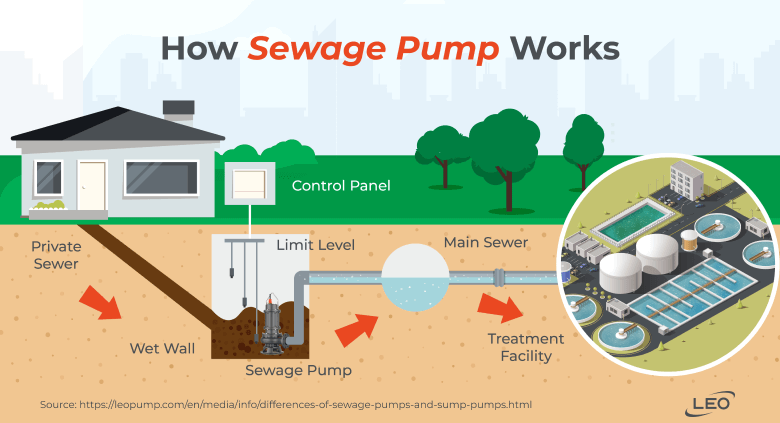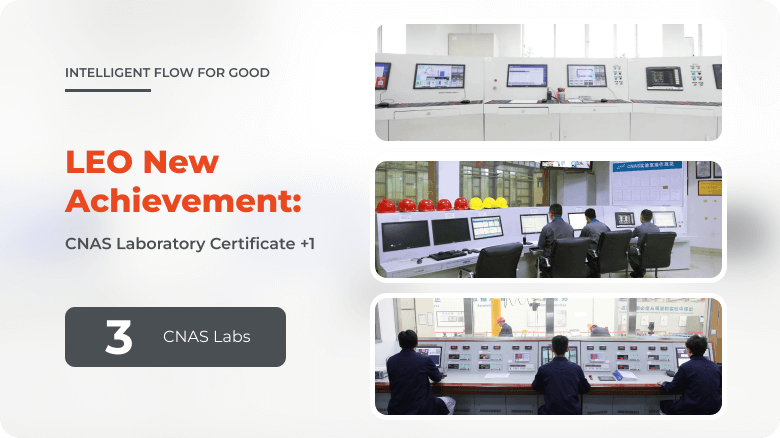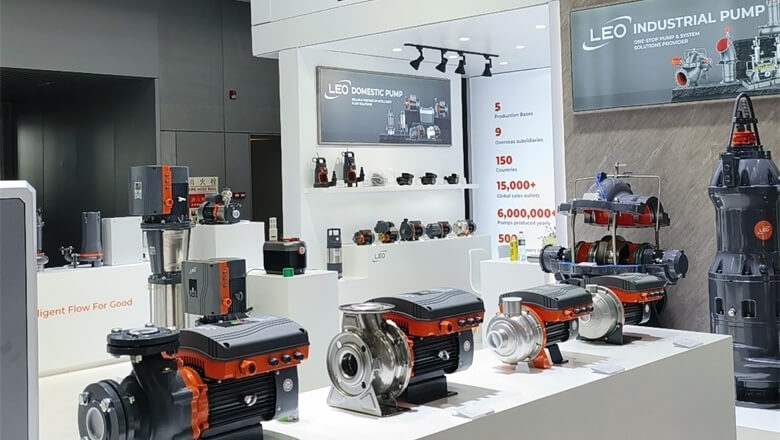
When it comes to managing water in your home, two common types of pumps are often mentioned: sewage pumps and sump pumps. Having the right pump is crucial. While they may seem similar, they are designed for distinct functions and operate in different areas of your home's plumbing system. Let's delve into the specifics to understand the clear differences between sewage pumps and sump pumps.
General Guide to Understanding Sewage Pumps and Sump Pumps
What Is a Sewage Pump and How It Works
A sewage pump is a device used to transport wastewater from one location to another. It handles the solids and liquids found in sewage systems. The pump helps to prevent clogs and backups by moving the sewage through pipes and into a treatment or disposal system.

What Is a Sump Pump and How It Works
A sump pump is a device used to remove water from a sump pit, typically found in basements or crawl spaces. It helps prevent flooding by pumping the water out and away from the building.

Notes: they are for your reference as normal application at home.
Decoding the Distinction: Sewage Pumps vs. Sump Pumps
Function
Sewage pumps are primarily responsible for ejecting waste from your home. This includes raw sewage and wastewater from toilets, sinks, showers, and washing machines, as well as other household waste.
Sump pumps are primarily designed to prevent flooding and water damage by removing excess water that accumulates in a sump pit or basin. This excess water may result from rainwater, groundwater, melting snow, or any other source of water infiltration into the basement or crawlspace.
Installation
Sewage pumps are typically installed in a sewage basin or pit below the ground level, often in the basement or a lower level of the house. They are connected to the plumbing system of a building to remove wastewater and sewage efficiently.
Sump pumps are typically installed in a sump pit or basin, usually dug below the lowest part of the basement or crawl space. They are connected to a discharge pipe that directs the pumped water away from the building, either into a storm drain, a dry well, or a designated drainage area.
Usage
Sewage pumps are essential for homes that have a basement bathroom or a bathroom located below the sewer line. They ensure that wastewater is efficiently removed from the property and directed to the appropriate sewage system or septic tank.
Sump pumps are crucial for homes in areas prone to flooding or water accumulation. They help prevent water damage to the foundation, walls, and belongings by efficiently pumping out excess water before it can cause harm.
Construction
Sewage pumps are built with robust materials to withstand the corrosive and abrasive nature of sewage and wastewater. And they often feature grinder or shredder mechanisms to break down solid waste particles, preventing clogs and ensuring efficient operation.
Sump pumps are generally constructed with durable materials to withstand prolonged exposure to water. And they are equipped with a float switch mechanism. So that the pump activates automatically when water reaches a certain level in the pit.
Common Applications
Sewage pumps:
- residential and commercial buildings where wastewater needs to be pumped away from the property to a municipal sewer system or septic tank.
Sump pumps:
- residential and commercial buildings with basements or areas prone to flooding or water seepage.
Key Differences of Sewage Pumps and Sump Pumps Summarized

Conclusion
Understanding the distinction between sewage pumps and sump pumps is crucial for homeowners. It helps them ensure proper functioning of their plumbing systems and protection against water damage.
To maintain a safe and efficient home environment, whether you're dealing with wastewater removal or flood prevention, selecting the right one for your specific needs is essential. Always consult with a professional plumber or water management expert to determine the most suitable pump for your property.
At LEO, we are providing sewage and sump pumps & systems pumping reliability, energy efficiency.







































